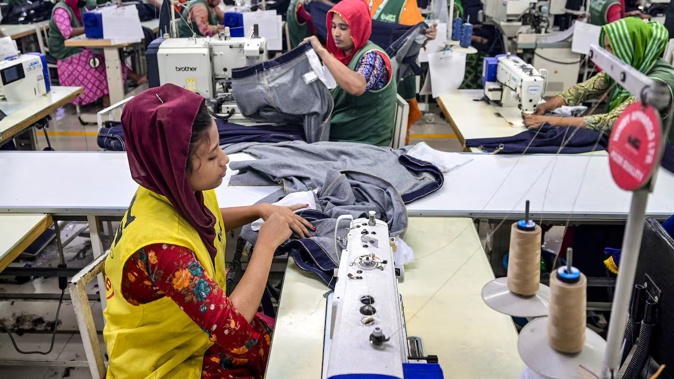
United States tariffs will kick in on August 1 if trading partners from Taiwan to the European Union do not strike deals with Washington, Treasury Secretary Scott Bessent said today NZT.
The rates will “boomerang back” to the sometimes very high levels that US President Donald Trump had announced on April 2 – before he suspended the levies to allow for trade talks and set a July 9 deadline for agreements, Bessent told CNN.
Bessent confirmed comments by Trump to reporters aboard Air Force One last week in which he also cited a new deadline: “Well, I’ll probably start them on August 1”.
The President told reporters today he had signed about a dozen letters to inform countries of rate hikes, to be sent out tomorrow.
“I think we’ll have most countries done by July 9, either a letter or a deal,” Trump told reporters, adding that some deals have already been made.
Standing at his side, US Commerce Secretary Howard Lutnick confirmed tariffs would kick in on August 1, “but the President is setting the rates and the deals right now”.
The tariffs were part of a broader announcement in April where Trump imposed a 10% duty on goods from almost all trading partners, with a plan to step up these rates for a select group within days.
But he swiftly paused the hikes until July 9, allowing for trade talks to take place.
Countries have been pushing to strike deals that would help them avoid these elevated duties.
So far, the Trump Administration has unveiled deals with the United Kingdom and Vietnam, while Washington and Beijing agreed to temporarily lower staggeringly high levies on each other’s products.
- Brics leaders to challenge US tariffs at Rio summit
- Vietnam signs trade deal with US as global talks continue
- Trump halts trade talks with Canada over digital services tax
- US court issues sweeping ruling blocking Trump tariffs
- How Canada is navigating trade tensions with strategic tariff pauses
Bessent said the Administration was “close to several deals”.
“I would expect to see several big announcements over the next couple of days,” he said.
But he would not say which countries he was referring to, adding: “I don’t want to let them off the hook”.
‘Maximum pressure’ playbook
Aboard Air Force One on Saturday, Trump said sending notices would be much easier than “sitting down and working 15 different things ... this is what you have to pay, if you want to do business [with] the United States”.
Bessent pushed back at CNN host Dana Bash’s assertion the Administration was using threats rather than negotiations and denied that Trump was setting a new deadline with the August 1 date.
“It’s not a new deadline. We are saying, this is when it’s happening. If you want to speed things up, have at it. If you want to go back to the old rate, that’s your choice,” he said.
He said the playbook was to apply “maximum pressure” and cited the European Union as an example, saying they are “making very good progress” after a slow start.
EU and US negotiators are holding talks over the weekend, and France’s finance minister said he hoped they could strike a deal.
Other countries were still expressing unease, however.
Japan’s Prime Minister Shigeru Ishiba said he “won’t easily compromise” in trade talks with Washington.
And Brics leaders of fast-growing economies meeting in Rio de Janeiro, Brazil, raised “serious concerns” that the “indiscriminate” import tariffs were illegal and risked hurting global trade.
When probed about worries that steep levies could feed into broader US inflation, Bessent said there was a difference between “inflation and one-time price adjustments”.
“Inflation is a generalised monetary phenomenon. We’re not going to see that. And thus far, we haven’t even seen the one-time price adjustments,” Bessent told Fox News.
- Agence France-Presse
Take your Radio, Podcasts and Music with you









